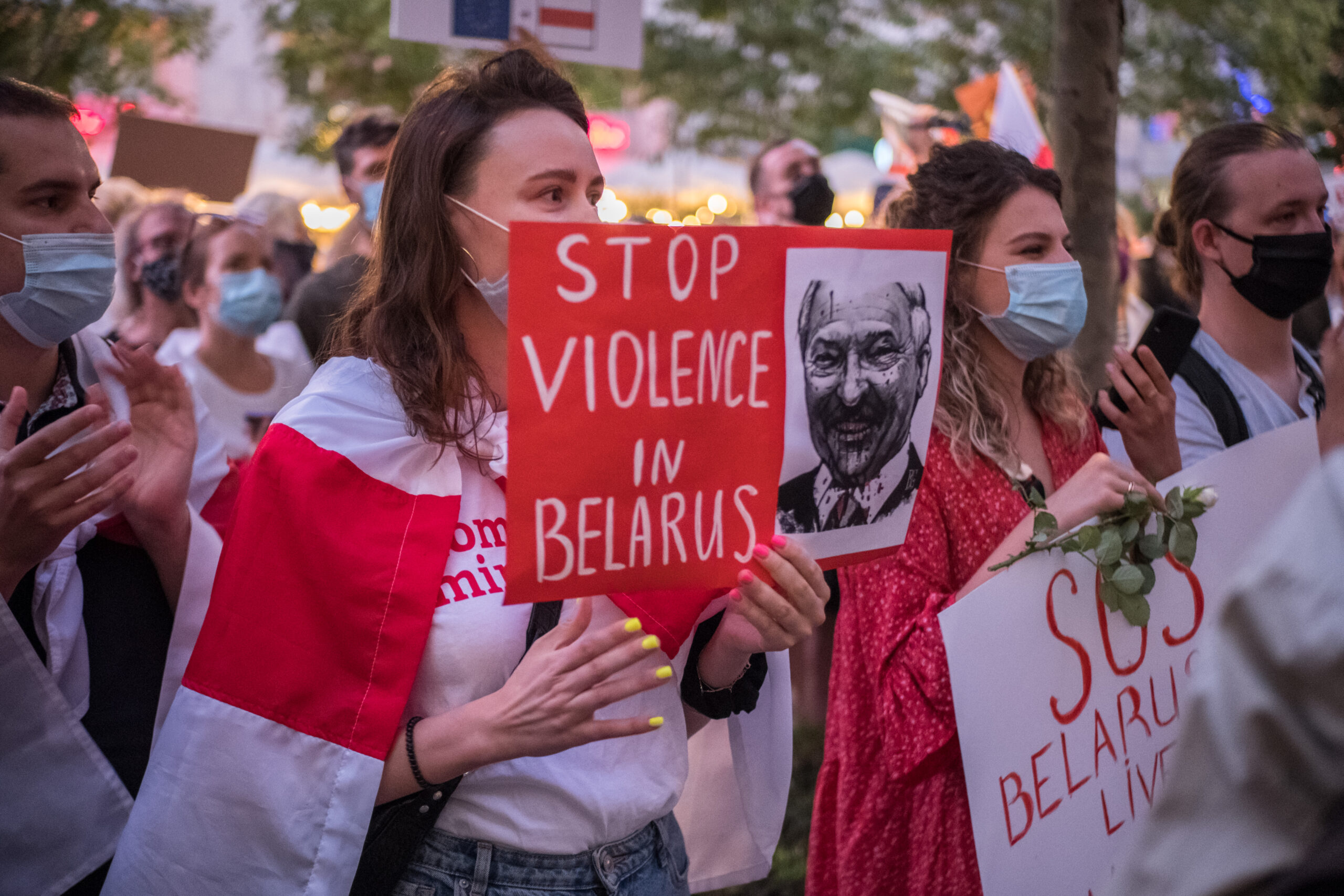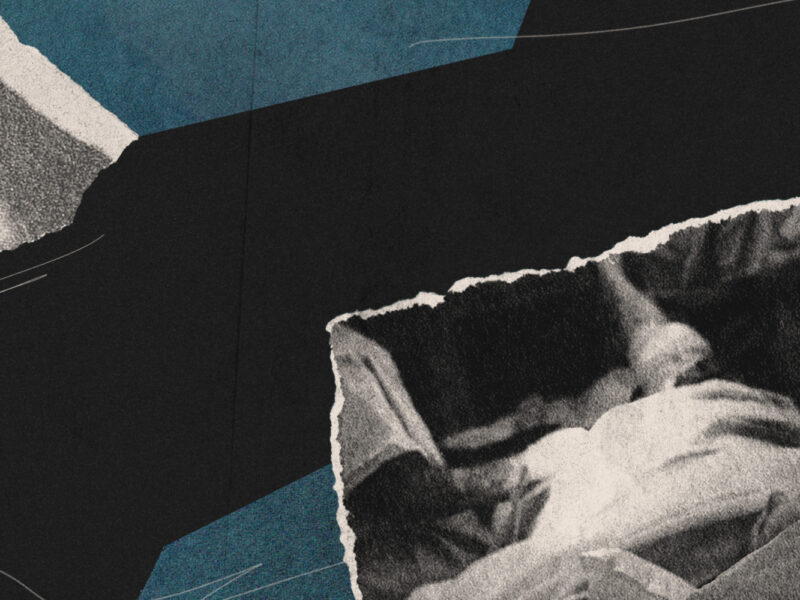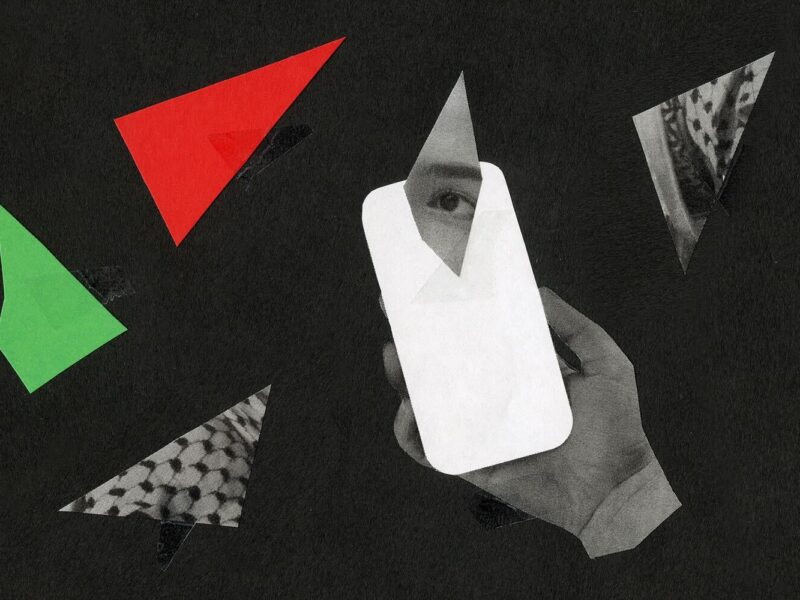There is a delicate balance when protesting inside the country: too much, and you attract police attention; too little, and you don’t make an impact.
In the summer of 2021, about 40 people sat squashed around a long table in the corner of a pizza restaurant in Minsk, the capital of Belarus. But this was not a birthday party; it was a gathering of a local opposition collective. The people seated around the table were there to reaffirm their support for the movement against the Lukashenko regime and to maintain the friendships and connections they developed during the last year of protests.
None of the people at the pizza restaurant wore red and white, the colors of the flag of the first independent Belarusian state, as they had at the protests the year before. All expressions of solidarity with the opposition are now dangerous. But despite the regime’s brutal crackdown on dissent, grassroots opposition groups all over the country are finding novel ways to challenge the system, an undertaking that carries enormous risk.
Belarus’s authoritarian leader Alexander Lukashenko managed to cling to power despite 10 months of massive, country-wide protests that followed the rigged national election of August 2020. But now the demonstrations—with thousands of Belarusians on the streets, workers marching out of state-owned factories, and red and white ribbon filled courtyards—are a thing of the past. Even the iconic Symbal.by, which sold products emblazoned with Belarusian traditional national symbols popular with the opposition, has been replaced with a shop selling kitchenware. The regime has crushed almost all visible dissent with mass arrests, imprisonment, and killings, instilling fear in the protest movement.
Belarus stayed in the news cycle throughout 2021, even after the opposition was largely in jail, silenced, or in exile. Lukashenko grabbed international headlines by threatening an Olympic athlete, force-landing a Ryanair flight in order to arrest a dissident journalist, threatening to obstruct Europe’s gas supply, and manufacturing a migrant crisis in the heart of Europe. In another incident, the body of Vitaly Shishov, a Belarusian activist who headed an NGO to help fellow exiles, was found hanging from a tree in a Kyiv park after he failed to return home from a jog. Ukrainian police have opened a murder investigation. The message to exiled activists, explained Igor Mitchnik, project leader at Libereco, an NGO focused on human rights in Belarus and Ukraine, is that “nowhere is safe”—the regime can get to them anywhere.
In this superb November 19 interview, Lukashenko tells the BBC’s Steven Rosenberg that he “may have helped” migrants enter the EU; he also says that Belarus would “massacre all the scum you’ve been financing”—referring to the 270 NGOs his regime has forcibly shut down this year.
Sviatlana Tsikhanouskaya, 39, the presumptive winner of the 2020 presidential election, who now lives in exile, has worked to keep the opposition in the news. Over the past year she has become an international figure, giving speeches, sitting for interviews with major media outlets, and meeting with world leaders like President Joe Biden, Prime Minister Boris Johnson, and Chancellor Angela Merkel. Meanwhile, the quiet work of activists inside Belarus goes mostly unnoticed. This is intentional; attention brings risk. But their persistence signals a determined strength to achieve a peaceful and sustainable transition to democracy.
The Partisans
There are many active cells of anti-regime partisans working underground inside Belarus, although the exact number of people involved is unknown. One group of partisans is a team of hackers that conducts frequent cyber attacks against the regime. Their successful hacks include: stealing the personal details of regime informants who reported on neighbors or colleagues; downloading recorded personal phone calls between members of the security apparatus; and publishing the personal information of senior KGB agents.
Tanya*, a 28 year old IT worker in Minsk, is a member of a cell that focuses primarily, in her own words, on samizdat: “We bring the truth to people, we print and distribute newspapers and leaflets.” This is in response to the regime’s attempts to re-monopolize the information sphere. In restricting access to independent information, the regime has declared neighborhood social media chats “extremist,” shut down independent media outlets, and arrested numerous journalists and bloggers. Even subscribing to an independent channel on Telegram, the encrypted messaging app, can be cause for arrest and a sentence of up to seven years in prison.
The partisan protest actions are small-scale and brief, designed to ensure images are shared widely on social media long after the activists have left the scene. There is a delicate balance when protesting inside the country: too much, and you attract police attention; too little, and you don’t make an impact. Last spring, for example, in the midst of the crackdown, activists planted small patches of white and red flowers around Minsk. Tanya shared photographs of districts that decorated their public areas with flowers and printed information on local marches and actions.
The partisans also employ tactics to hurt the regime economically by, for example, encouraging consumers to boycott state-owned enterprises. In Belarus a wide range of foodstuffs and products are produced by the state, or by businesses closely connected with the regime. Products under boycott range from sausages and sugar, to cigarettes. A neighbouring cell has been raising the pressure by placing items on railway tracks to disable signals and delay trains carrying items for export, threatening the Europe-Asia transit route, a source of income for the regime.
Tanya was devastated to learn in August that the International Monetary Fund (IMF) had decided to send the regime $1 billion. The money was ostensibly earmarked to help the government fight Covid-19, but for opposition activists and outside observers, it would simply prop up Lukashenko’s illegitimate regime.
Timothy Ash, the London-based economist, asked in a rhetorical tweet if the IMF acronym SDR (Special Drawing Rights) actually stood for “support dodgy regimes.” Sviatlana Tsikhanouskaya, the exiled opposition leader, tweeted that she had sent letters to the IMF and the US government asking them to freeze the funds, which she had earlier asserted would be misused by the regime for nefarious purposes. A Washington Post editorial headline was blunt: “Biden should not let the IMF throw a lifeline to Belarus’ dictator.” Tanya said: “I felt that all my efforts, all the sleepless nights and the suffering of friends behind bars—it was all in vain.”
A few months later, as Belarus began registering record levels of Covid-19 infections, Lukashenko scrapped a short-lived mask mandate and ordered signs calling for them to be worn removed from public transport and shops, confirming the opposition’s fears that the IMF’s funds would be misappropriated.
Membership in the partisans is dangerous and many members have been arrested. But Tanya remains committed precisely because the regime treats prisoners inhumanely and humiliates their supporters. She recounted that on a recent visit to a local prison the guards refused to accept rolls of toilet paper for an inmate unless the tissue was separated along the perforated lines into individual squares. “The whole queue of family and friends were just standing there, ripping toilet paper into pieces,” she recalled. The guards eventually accepted the toilet paper, but didn’t give it to the prisoners until they were released.
KOTOS
Alina, an economist in her 50s, is focused on organizing local self-government bodies, known in Belarus as KOTOS, across her city. The main idea behind KOTOS, which have functioned since 2014, is to build a collective of active neighbours who deal with local issues and improve the community’s quality of life. They decide what murals will be painted on local buildings, where to place a new bench in a courtyard, or how to improve playgrounds for children. For Alina, the aim is to maintain and build on the newfound momentum for civic engagement developed over the past year, laying the foundations for an eventual democratic state.
The KOTOS is supposed to be made up of locally elected representatives with a chairperson as the leader; but, as Alina and local residents discovered, to no one’s surprise, the regional administration appointed the representatives. KOTOS’s work is unpaid, and some of the appointed chairpersons in the region, explains Alina, did not want the position; but in a dictatorship, where the key currency is loyalty to the regime, they “could not refuse.” Chairpersons are reluctant to meet with the locals they represent; Alina recounts how in one neighbourhood “she [the chairman] still hides from the residents, coming up with different excuses to avoid them.”
With the ongoing crackdown against any form of civic engagement, the regime is unlikely to tolerate the involvement of local citizens in KOTOS. This, however, does not discourage Alina. She is looking for different ways to work within the system, from engaging with the local chairperson, to seeking out areas where a KOTOS does not yet exist and distributing information to local residents on how to organize their own system from scratch. Her goal is to find “people who sincerely want to improve life in their neighbourhood” and build grassroots communal solidarity.
This work is challenging. A year ago, there were people in the country who were happy to host discussions with locals on the rules and system of KOTOS; conduct seminars and consultations; and provide legal assistance. But, as Alina notes, who would want to “stand out from the crowd today?”
New civil society initiatives
Volha, a businesswoman in Minsk, is developing a digital platform to educate people about democratic values. It provides a forum for experts from around the world to present information on different democratic systems to the next generation of Belarusians.
Volha describes Belarus today as “scorched earth,” noting that nearly all the people who had been developing civil society have left the country. In July 2021 Lukashenko announced a “clean-up” of civil society; since then, 270 independent NGOs have been closed down, with many activists facing trumped up criminal charges. But Volha believes some people need to remain in Belarus, despite the danger. If civil society was possible before the 2020 uprising against Lukashenko’s regime, she argues, some form “could become possible again.” She stresses that now is not the time to give up developing initiatives inside the country. And while she worries about being arrested and imprisoned, Volha says that her greatest fear is being prevented from carrying on her work, because “from prison you can’t influence anything anymore.”
Activists who have remained in the country also run the risk of being labelled a GONGO— a “government-organized NGO.” For the opposition in exile, anyone who cooperates with the regime is de facto lending it legitimization. But Volha is undeterred. She knows that if she wants to develop her initiatives inside Belarus some cooperation with local authorities is unavoidable. Her approach is to integrate local authorities into her activities in order “to show them how things can work in normal countries, how it could be in Belarus.” Viewing all local authorities as representatives of Lukashenko, she says, is the wrong approach and “destroys all bridges.”
Igor Mitchnik stressed the danger of this approach. The regime, he says, “has lost any credibility as a reliable partner for civic or democratic initiatives.” But he values the work of any organization that promotes “a vision of democratic alternatives for their society.”
Volha’s approach to sustainable change in Belarus is, in her own words, “evolution, not revolution.” Yes, she acknowledges, the regime is oppressive, but “we [Belarusians] have allowed [it] to exist.” She argues that the only way to ensure Belarusians throw off the dictatorship, permanently, is through systemic change; otherwise it is only a matter of time before Belarusians will once again live under such a regime.
Conclusion
These three activists represent very different approaches to regime change from inside Belarus, but they all believe Lukashenko is on borrowed time. While Tanya and the partisans fight the regime from the outside, Alina and Volha highlight a more nuanced grey area of opposition activism inside Belarus, one that requires some degree of cooperation with the regime. Whether their approach has merit remains to be seen; as Audre Lorde famously argued, “the master’s tools will never dismantle the master’s house.”
The future of the opposition inside Belarus is, of course, unclear. Local elections have been postponed indefinitely, and the cruelty of the ongoing crackdown means the March 22 country-wide referendum on constitutional reform is unlikely to lead to fresh protests.
One thing that is clear, however, is that the official Belarusian opposition depends on this network of activists inside the country to keep domestic pressure on the regime, and they are showing no signs of abating. As Tanya vowed: “as long as Belarus is not free, I will not stop.”
*All the names of the activists inside Belarus have been changed to protect them.



